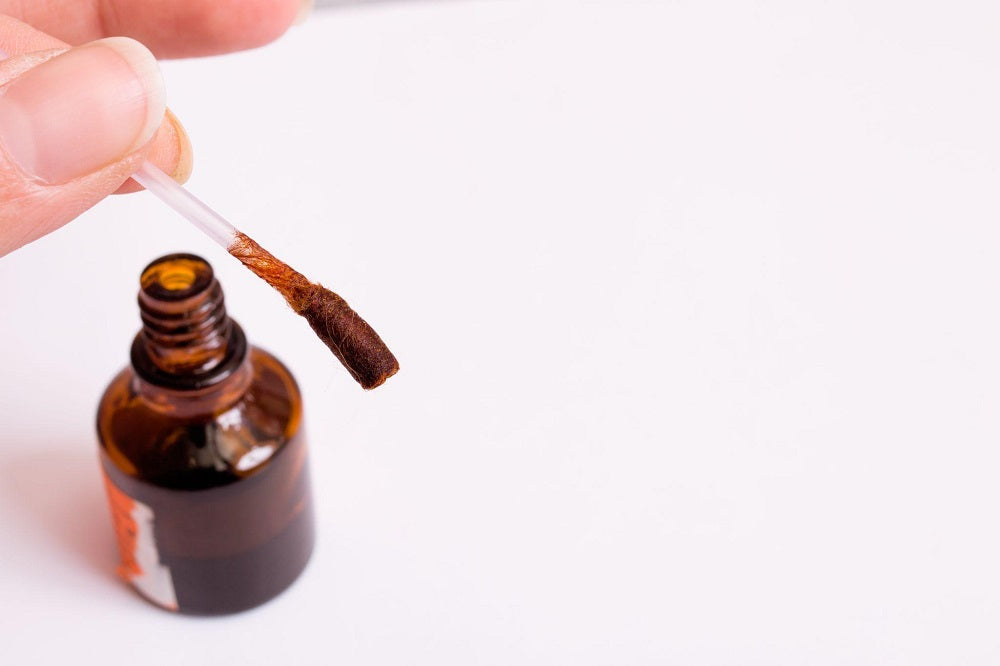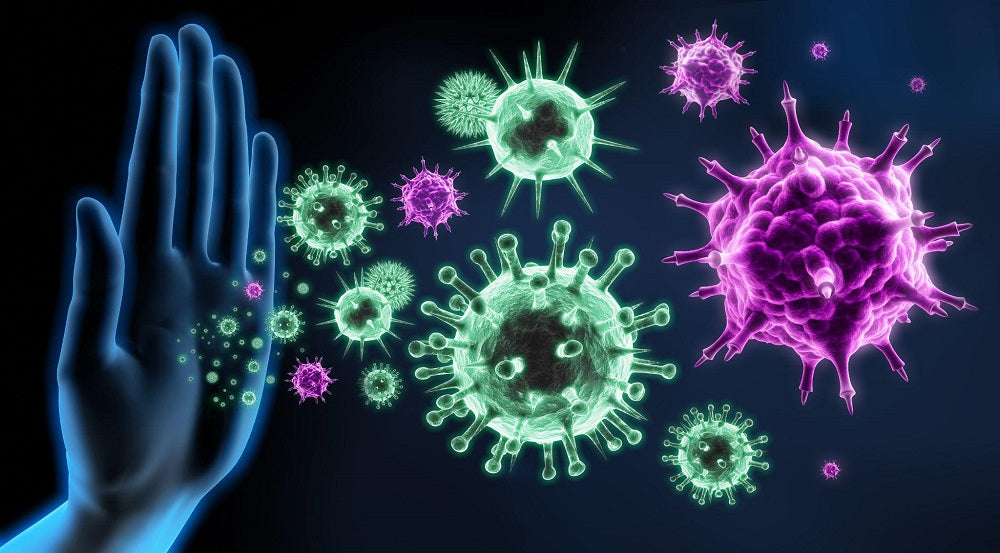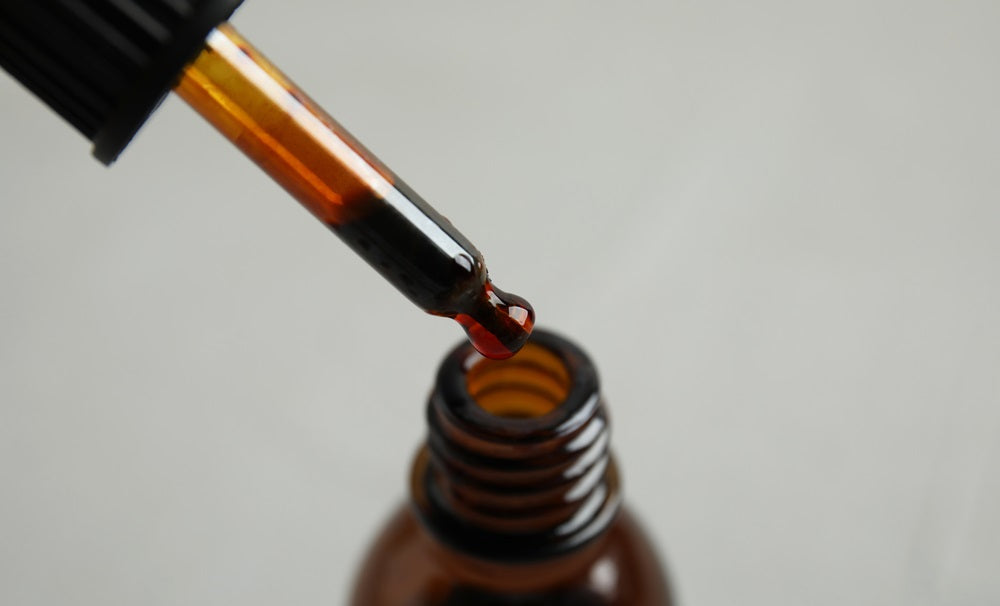Iodine is vital for your health. It allows your body to produce essential thyroid hormones and can give your cells and immune system a necessary boost. That isn't all iodine can do, however.
Iodine can also help improve your skin health. Here's how you can incorporate it into your skincare routine.
The Skin Benefits of Iodine
Iodine is an essential mineral that can help support your thyroid gland, improve your cellular health, and even provide your immune system with a boost.
It's also an incredible skincare ingredient, capable of preventing acne, hydrating your skin, and even reducing the prominence of scars.
Acne Prevention and Treatment
One of the best benefits of topical iodine is that it can help prevent and treat acne breakouts. Iodine is antibacterial and anti-inflammatory and can reduce the intensity of acne breakouts as a result.
It prevents acne from becoming infected or irritated and can even help prevent acne scarring. You can enjoy the benefits of iodine on skin acne by applying topical povidone-iodine solution a few times per week.
You should use it directly to irritated areas and acne scars on your skin and allow it to absorb slowly. After the iodine solution sits for several hours, you can wipe it away with a moist cloth.
Skin Hydration and Moisture
Iodine supplementation is also a great way to keep your skin hydrated and moisturized. Adequate iodine intake allows your body to sweat properly and keep your skin moist and healthy.
It can also help improve your cell function, complexion, luscious hair growth, and healthier skin. You can increase the benefits of your iodine or potassium iodide treatment by pairing it with traditional skin moisturizing products.
You should incorporate products that use ingredients like hyaluronic acid, essential oils, glycerin, sunscreen, ceramides, and vitamin C into your skincare routine to maximize your routine's moisturizing effects.
One of the best products for hydrating your skin is an iodine serum like Detoxadine. When applied topically, this iodine supplement can provide you with vital thyroid and immune support while moisturizing your skin.
It's also incredibly versatile, as there's a perfect way to incorporate detoxadine into your daily routine for almost any lifestyle.
Wound Healing and Scar Reduction
Among its numerous applications, iodine is most famous as a natural disinfectant that assists in wound healing and prevents scar formation. Because iodine kills bacteria and other pathogens surrounding a wound, it helps the healing process by allowing the body to focus its energy on rebuilding the skin barrier.
Applying iodine daily can help prevent scar tissue formation by reducing inflammation. Studies have shown that existing scars can regenerate after several days of topical iodine application. The only significant side effect observed was minor stinging if too much iodine was applied.
Types of Iodine for Skincare

There are a few different ways to incorporate iodine into your skincare routine. Iodine supplements are a reliable and convenient way to enjoy the benefits of iodine; you can also add iodine-rich foods to your diet to improve your iodine level and thyroid hormone production naturally.
Topical Iodine Solutions
Most iodine acne treatments and routines meant to keep your skin healthy involve topical iodine solutions. If you want to enjoy the benefits of povidone-iodine topical solution without suffering from excess iodine consumption symptoms, you'll need to apply it carefully.
Follow the directions on the label of your topical iodine solution exactly. Depending on the topical iodine solution you receive — a powder, cream, spray, liquid, ointment, or even soap — the application process may differ. You should clean your skin before applying the iodine for best results.
If you notice any side effects, like swelling, pain, blistering, flaky skin, thinning hair, itching, burning, redness, oozing, or inflammation, stop using your iodine solution immediately and contact your doctor. Iodine sensitivity and allergic reactions are potentially life-threatening and must be addressed by a medical professional.
Iodine-Rich Foods and Supplements
Beyond supplementing with iodine, you can also help improve your skin and overall health by eating plenty of iodine-rich foods. These foods can be incorporated into any diet, whether you eat a standard diet or follow specialized lifestyles like keto or veganism.
Some of the best iodine-rich foods you can eat to boost your iodine intake include:
- Egg yolks
- Yogurt, cottage cheese, and other non-organic dairy products
- Fresh cranberries, strawberries, and prunes
- Seaweed, oysters, cod, tuna, and shrimp
- Iodized salt
- Fortified plant-based dairy alternatives
- Potatoes, navy beans, and lima beans
You should regulate the amount of iodine you eat and avoid eating too little or too much. As an adult, you should try eating approximately 150 mcg (micrograms) of iodine daily.
If you're pregnant or breastfeeding, increase your intake of iodine to 220 mcg or 290 mcg, respectively. Depending on their life stage, infants and children will require various amounts of dietary iodine.
Incorporating Iodine Into Your Skincare Routine

Incorporating iodine into your skincare routine is one of the best ways to promote a healthy body and prevent the buildup of bacteria and fungi on your skin.
As you add iodine to your beauty and health routine, you'll need to undergo patch testing, experiment with DIY serums, and potentially consult your dermatologist.
Patch Testing
Before you begin molecular iodine treatment, it's vital to schedule a patch testing appointment. During the test, your primary care doctor or dermatologist will paint a small patch of your skin with an iodine solution and allow it to sit.
You'll need to leave the patch alone for the next 24 hours. Once a whole day has passed, the doctors recheck the iodine patch to see what condition it is in. If the patch completely or almost entirely disappears, it indicates that you're likely deficient in iodine.
You can assume that your iodine level is already sufficient if the iodine sits, while allergic reactions may mean you'll need to avoid supplementing with iodine entirely.
DIY Iodine Face Masks and Serums
If you've been on TikTok recently, you may have seen the recent uptick in videos about trendy DIY iodine face masks and serums. These videos suggest treating acne breakouts by applying iodine on irritated, dry skin.
These face masks and serums are proven to be effective because they reduce bacteria, much like clindamycin, sulfur washes, and benzoyl peroxide. There's a wide variety of DIY iodine face masks and serum recipes on the internet.
Many incorporate different active ingredients, so it's worth researching several recipes to determine which you think might best support your healthy skin.
Some of the best recipes for skin care serums include ingredients like:
- Honey
- Nutritional yeast
- Aloe
- Turmeric
- Olive oil
- Green tea
- Plain yogurt
- Chamomile
- Avocado
- Coconut milk powder
- Plain oatmeal
If you want to make your own homemade face masks and serums, mix them immediately before you intend to apply them and wash them off within an hour of application.
Pre-mixing your homemade face mask and allowing it to sit in the fridge may allow microbes to grow, and they'll only harm your skin further when applied.
Consultation with a Dermatologist
You may need to schedule a consultation with your dermatologist when you incorporate iodine into your skincare routine to enjoy the best possible results.
Arranging an initial iodine patch test will allow you to determine whether you're suffering from symptoms of iodine deficiency, including flaky skin or insufficient sweating. If your dermatologist determines you're suffering from iodine deficiency, they may prescribe you a topical iodine solution.
This 5% iodine solution will quickly absorb into your skin and may be applied as a spray, lotion, ointment, or other type of treatment. You'll need to allow it to rest on your skin and avoid showering for at least an hour after its application.
You may need to clean your skin thoroughly after treatment, as iodine can stain skin. If you repeatedly apply iodine to the same skin area, you may also need to use a moisturizer to prevent dryness.
Don't worry about iodine overdose when using topical iodine; your body will refuse to absorb any iodine it doesn't need.
Precautions and Considerations

In general, topical iodine and dietary iodine supplements provide a safe and easy way to improve your thyroid function, protect your skin, reduce hair loss, and even boost your immune system.
However, it's important to remain cautious throughout the treatment process to avoid the risk of allergic reactions or iodine toxicity.
Allergies and Sensitivities
While most people can tolerate a bit of extra iodine in their diet, some suffer from iodine allergies and sensitivities. These two conditions have distinct symptoms. Both are vital to recognize and address when present.
If you suffer an allergic reaction while applying topical iodine or consuming iodine supplements, you should stop iodine treatment immediately and contact your doctor.
Symptoms of an allergic reaction may include:
- Itchy, slow-onset rash
- Swelling of tongue and throat
- Hives
- Low blood pressure and rapid pulse
- Dizziness and lightheadedness
- Confusion
- Diarrhea
It's impossible to be allergic to iodine, but suffering an allergic reaction during iodine treatment may indicate you're highly allergic to another ingredient in your medicine. You will need to work with your doctor to determine and eliminate the allergen.
Unlike allergic reactions, iodine sensitivity symptoms generally only occur when excessive iodine is consumed. Iodine sensitivity will likely occur alongside certain conditions, including Graves' disease and hyperthyroidism.
Iodine sensitivity symptoms may include:
- Abdominal pain
- Nausea
- Fatigue and weakness
You should speak to your doctor if you are suffering from iodine sensitivity. Treating iodine sensitivity may involve gradually reducing or increasing your intake, depending on the underlying cause.
Risks of Overuse
As you follow your new skincare routine, avoiding overusing iodine is vital. Applying too much iodine on your skin may result in symptoms like contact dermatitis (or chemical burns), blistering, dry and flaky skin, and rashes and irritation. Reduce the frequency of your iodine treatments if you notice any new skin issues developing.
Achieve Healthy, Radiant Skin with Iodine
Achieving radiant and beautiful skin is possible when incorporating topical iodine products into your skincare routine.
When paired with tried-and-true moisturizing and nourishing skincare products, iodine can kill microbes, prevent pimples, and even reduce the prominence of scars.
Frequently Asked Questions
Can iodine help with skin conditions like eczema or psoriasis?
Iodine isn't a comprehensive treatment for skin conditions like eczema or psoriasis. Still, it can help treat these skin conditions by preventing the buildup of bacteria and pathogens in open sores and deep wounds.
Applying iodine may cure skin condition outbreaks if a skin infection of bacteria or fungi causes them.
Are there any side effects of using iodine on the skin?
There are a few side effects of using iodine on your skin when an improper amount is used. Ingesting too much iodine can result in iodine toxicity, while applying too much povidone-iodine solution to your skin can result in symptoms like blistering, chemical burns, inflammation, and skin irritation.
Can iodine be used for dark spots or hyperpigmentation?
Iodine can be used to treat dark spots and hyperpigmentation. The best results can be achieved by applying moderate doses of topical povidone-iodine solution over a long period.
You should pair iodine treatment with other known hyperpigmentation treatments, including alpha-hydroxy acid, salicylic acid, and tretinoin.
What are some iodine-rich foods that promote healthy skin?
The best iodine-rich foods to promote healthy skin include seaweed, non-organic dairy products, prunes, fresh cranberries, shrimp, cod, egg yolks, potatoes, lima beans, and fortified plant-based dairy alternatives.
If you're willing to eat the right foods, preventing a severe iodine deficiency in any diet is possible.
Is iodine safe for all skin types, including sensitive skin?
Iodine is safe for treating acne on all skin types, including sensitive skin. However, some people suffer from iodine sensitivities.
If you notice redness, pain, or inflammation where the iodine was applied, you should immediately wipe it away and avoid using iodine for skincare in the future.



